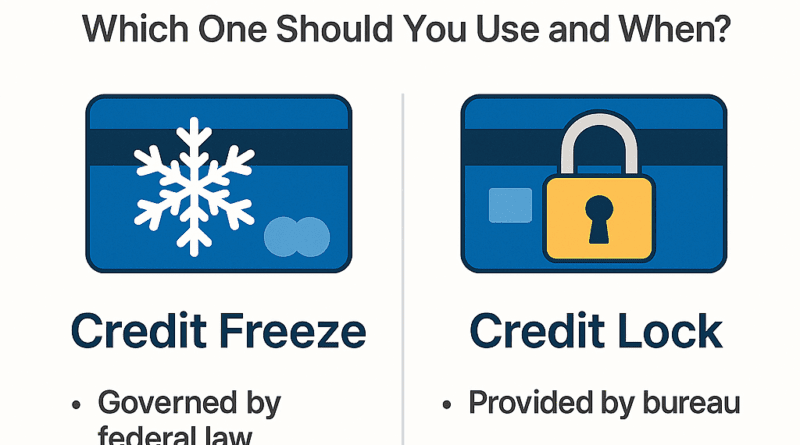Credit Freeze vs Credit Lock: Which One Should You Use and When?
When Cheryl got a notice about a new loan application in her name, she panicked. She hadn’t applied for anything.
“Should I freeze my credit or just lock it?” she asked.
That question is more common than you’d think — and the answer depends on how much protection and control you really want.
Let’s break it down.
🔐 What Is a Credit Freeze?
A credit freeze is a federally mandated tool that stops lenders from accessing your credit report entirely. It’s powerful, simple, and free.
- Governed by federal law
- Always free from all three bureaus
- Requires PIN or login to lift the freeze
- Does not affect your current credit lines or score
Best for:
- Victims of identity theft
- People not planning to apply for credit soon
- Long-term security
🔒 What Is a Credit Lock?
A credit lock is a similar concept — it blocks access to your credit file — but it’s managed by the credit bureaus themselves.
- Offered through mobile apps or online portals
- Sometimes part of paid identity protection services
- Easier to toggle on/off
- Not legally protected like a freeze
Best for:
- People who apply for credit often
- Those who want convenience over legal guarantees
📊 Quick Comparison
| Feature | Credit Freeze | Credit Lock |
|---|---|---|
| Legal Protection | ✅ Yes | ❌ No |
| Free to Use | ✅ Always | ⚠️ Sometimes |
| Easy to Toggle | ❌ Not Instantly | ✅ Via App |
| Best For | Strong security users | Frequent applicants |
🧠 So, Which One Should You Choose?
If you’re dealing with fraud or just want to lock things down — go with a freeze.
If you want flexibility and instant access — a lock might be your style.
“I went with the freeze,” Cheryl told me later.
“And the peace of mind was worth it.”
